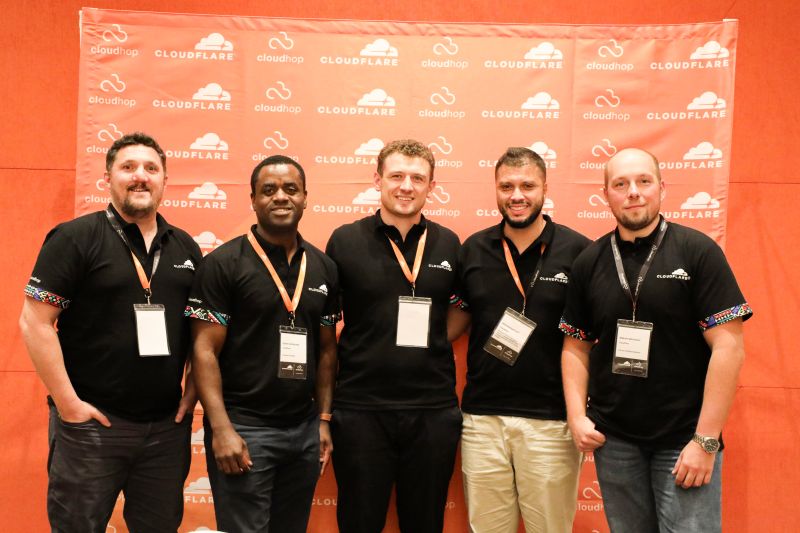In a significant move to bolster cybersecurity measures and safeguard digital assets and user data across Africa, Cloudflare, a prominent American IT service management company, has forged a strategic partnership with CloudHop, a Kenyan firm specialising in cloud computing and data management solutions.
This collaboration is set to leverage advanced techniques to enhance cybersecurity, addressing the growing threats faced by businesses and organisations across the continent.
Read also: 5 tips to avoid cyberattacks in 2023 as a remote worker
Unlocking Advanced Cybersecurity Solutions in Africa
Cloudflare, renowned for providing cutting-edge web performance and security solutions to millions of websites globally, is now joining forces with CloudHop. As part of this collaboration, CloudHop will have the capacity to offer Cloudflare’s advanced cybersecurity services to its clients, strengthening their digital defences.
Among the pivotal services that CloudHop will provide to its clients is Cloudflare CDN (Content Delivery Network). This technology optimises website loading times by caching content closer to users at the Internet’s edge, significantly improving overall user experience.
In addition to CDN, Cloudflare SSL (Secure Sockets Layer) will ensure robust encryption of user and website data, ensuring privacy and security. Furthermore, Cloudflare Firewall, a web application firewall, will stand as a safeguard against a range of malicious attacks, including SQL injection, cross-site scripting, and Distributed Denial of Service (DDoS) attacks.
This partnership between Cloudflare and CloudHop comes at a critical juncture as Africa experiences rapid digitization across various sectors. With businesses and services increasingly reliant on digital platforms, the importance of robust cybersecurity measures has never been more pronounced.
Cyberattacks pose a significant threat to digital assets and user data, impacting not only a company’s performance but also its reputation. Hence, the implementation of dependable and efficient cybersecurity solutions is paramount to safeguarding websites against a broad spectrum of threats, including hackers, malware, and cyberattacks.
Kenya’s eCitizen Platform Surpasses 7,453 Services, Facilitating Digital Engagement with Citizens
In recent developments, Kenya’s eCitizen platform has achieved a remarkable milestone by exceeding 7,453 services, surpassing its initial target of 5,000 services. This achievement follows closely on the heels of a cyberattack on the platform orchestrated by Anonymous Sudan, a Sudanese hacker group, which temporarily disrupted its operations.
Launched in 2014, eCitizen is a self-service portal designed to provide Kenyan citizens with online access to a wide array of government services. These services encompass passport applications, licence renewals, business registrations, land searches, and more.
Kenya seeks citizens’ input on draft regulations for cybercrimes, misuse of technology
Streamlining Citizen-Government Interactions
The primary objective of the eCitizen platform is to simplify interactions between citizens and the government by providing a centralised point of access for a diverse range of government services. To access these services, users must first create an account using their email address or ID number, after which they can log in to utilise the platform’s offerings.
Eliud Owalo, the ICT Cabinet Secretary, reported that an additional 6,817 services have undergone partial digitization. Notably, organisations such as the Competition Authority of Kenya and the Kenya Ports Authority made the transition to the platform in February and March 2023, respectively.
This digitization initiative is set to continue, with various organisations, including the National Environment Management Authority (NEMA), Kenya National Library Services (KNLS), Kenya Airports Authority (KAA), Communication Authority of Kenya (CA), the judiciary, and the Teachers Service Commission (TSC), planning to automate their services in the near future.
Kenya’s eCitizen platform has become an indispensable tool for citizens seeking government services, making access easier and reducing bureaucratic hurdles. As the platform continually expands its service offerings and streamlines interactions between citizens and government entities, it plays a pivotal role in enhancing digital engagement and facilitating more efficient access to vital services.




